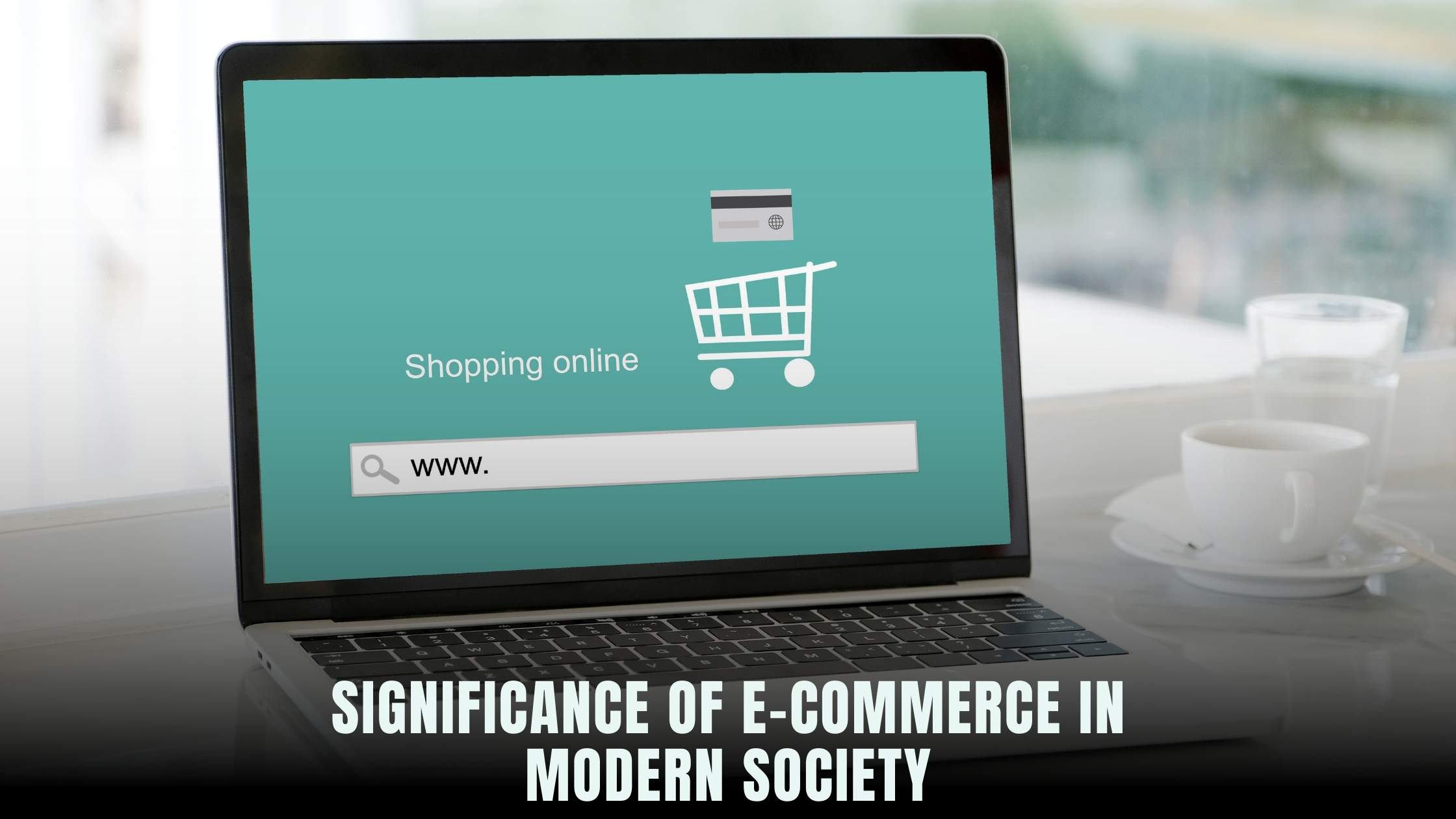Significance of E-commerce in Modern Society: Insights


Significance of E-commerce in Modern Society: Insights
In today’s digital age, e-commerce has transformed the way people shop and conduct business, revolutionizing the retail industry and shaping modern society in profound ways. From the convenience of online shopping to the globalization of markets, e-commerce plays a pivotal role in driving economic growth, empowering entrepreneurs, and reshaping consumer behavior. In this article, we’ll explore the significance of e-commerce in modern society and delve into the key insights that highlight its importance in shaping the way we live, work, and interact.
The Evolution of E-commerce
E-commerce, or electronic commerce, refers to the buying and selling of goods and services over the internet. What began as a novel concept in the early days of the World Wide Web has evolved into a multibillion-dollar industry that spans the globe. With advancements in technology, infrastructure, and payment systems, e-commerce has become more accessible, efficient, and secure, driving unprecedented levels of growth and innovation in the digital economy.
Why is eCommerce Important in Modern Society?
1. Convenience and Accessibility
E-commerce offers unparalleled convenience and accessibility, allowing consumers to shop anytime, anywhere, from the comfort of their homes or mobile devices. With just a few clicks, shoppers can browse a vast selection of products, compare prices, read reviews, and make purchases, eliminating the need to visit physical stores or wait in long checkout lines.
2. Globalization of Markets
E-commerce has facilitated the globalization of markets, enabling businesses of all sizes to reach customers beyond their geographical boundaries. Through online marketplaces and platforms, sellers can tap into new markets and demographics, expanding their customer base and driving international trade and commerce.
3. Empowerment of Entrepreneurs
E-commerce has democratized entrepreneurship, providing aspiring business owners with the tools, resources, and platforms to launch and grow their ventures online. From small startups to independent sellers, e-commerce offers a level playing field where anyone with a product or idea can reach a global audience and compete in the digital marketplace.
4. Data-Driven Insights
E-commerce generates vast amounts of data on consumer behavior, preferences, and trends, providing businesses with valuable insights that can inform marketing strategies, product development, and customer engagement initiatives. By analyzing data from online transactions, businesses can personalize the shopping experience, optimize pricing strategies, and anticipate market demand.
5. Job Creation and Economic Growth
E-commerce has emerged as a major driver of job creation and economic growth, fueling demand for skilled professionals in areas such as digital marketing, logistics, customer service, and technology development. As e-commerce continues to expand, it creates new opportunities for employment, innovation, and investment, contributing to overall economic prosperity.
Relevant SaaS Products for E-commerce
To thrive in the competitive landscape of e-commerce, businesses can leverage a variety of SaaS products and tools designed to streamline operations, enhance customer experience, and drive sales. Here are some relevant SaaS products that can help businesses succeed in the world of e-commerce:
- Shopify: Shopify is a leading e-commerce platform that enables businesses to create online stores, manage inventory, process payments, and track sales. With features like customizable storefronts, integrated payment gateways, and built-in marketing tools, Shopify empowers entrepreneurs to build and grow their e-commerce businesses with ease.
- WooCommerce: WooCommerce is a flexible, open-source e-commerce plugin for WordPress that allows businesses to turn their websites into online stores. With WooCommerce, users can sell physical and digital products, manage orders and inventory, and customize their store with a wide range of themes and extensions.
- Magento: Magento is a powerful e-commerce platform that offers enterprise-level features for businesses of all sizes. With advanced capabilities for customization, scalability, and performance, Magento enables businesses to create immersive shopping experiences, optimize conversion rates, and drive growth across multiple channels.
- BigCommerce: BigCommerce is a cloud-based e-commerce platform that provides everything businesses need to sell online, including customizable storefronts, secure payment options, and built-in marketing tools. With features like omnichannel selling, advanced analytics, and seamless integrations, BigCommerce helps businesses succeed in the digital marketplace.
- Mailchimp: Mailchimp is a marketing automation platform that offers tools for email marketing, audience segmentation, and campaign management. With Mailchimp, businesses can create personalized email campaigns, automate customer journeys, and drive engagement and sales through targeted messaging.
Leveraging Subscribed.FYI for E-commerce Tools
For businesses looking to enhance their e-commerce capabilities with SaaS tools and platforms, Subscribed.FYI provides access to a curated selection of solutions designed to streamline operations, optimize marketing efforts, and drive sales. From Shopify and WooCommerce to Magento and BigCommerce, Subscribed.FYI offers a comprehensive range of e-commerce tools tailored to the needs of businesses of all sizes and industries.
Unlock exclusive deals and savings on premium e-commerce tools with Subscribed.FYI Deals, and take your online store to new heights of success.
Relevant Product Links:








